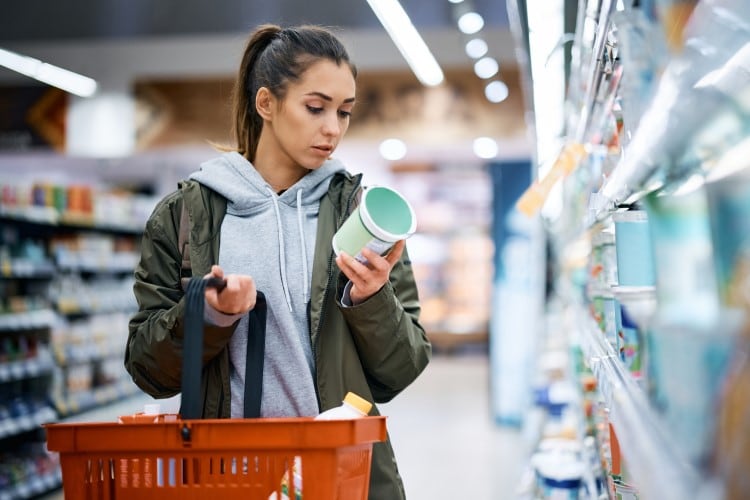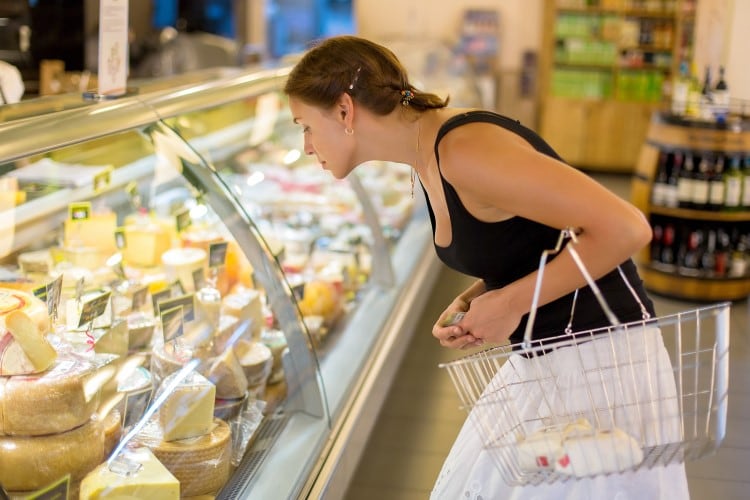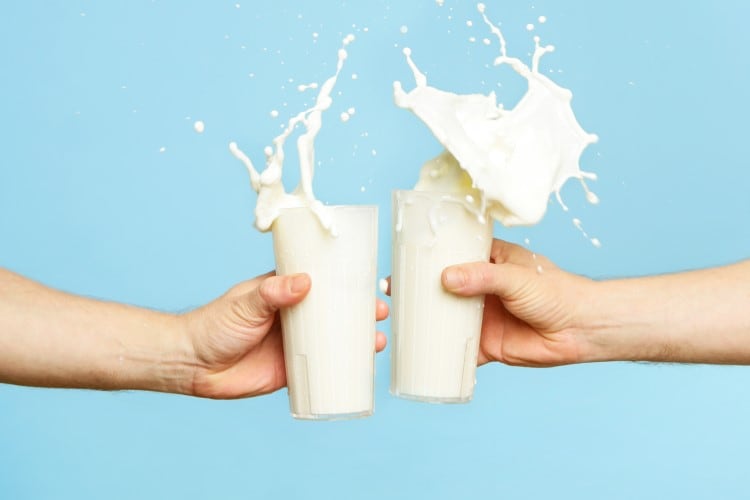The research was carried out by ingredient supplier Ingredion as part of its ATLAS program that surveys more than 100,000 consumers from over 33 global markets to examine trends including attitudes and behaviors towards specific ingredients and benefits.
The latest survey showed that an increasing number of food and beverage manufacturers are planning to include clean-label products in their portfolios while consumers continue to seek out products with shorter ingredient lists, with natural claims being key to converting purchase intent into sales.
Dairy is well-placed to appeal to consumers looking for clean labels and natural claims, but challenges exist for processed dairy categories like ice cream and flavored yogurt, where additives are often needed to maintain texture and flavor expectations.
Constantin Drapatz, Ingredion senior marketing manager, Clean & Simple Food Ingredients, told us the research program launched in early 2011 as a means to understand the product attributes that add value and drive choice on shelf, but has since been expanded into an all-encompassing insights program that analyses consumers, manufacturers, food service and retailers.
“Since its inception, consumer demand for clean label food products has grown significantly,” Drapatz explained. “In our latest study, 78% of global consumers said they would pay more for foods and beverages with natural or all natural claims.
“Alongside this, behaviours such as purchasing packaged food and beverages with natural ingredients saw a net gain of 40% in 2023 vs. 2020.”
In the latest research, Ingredion also surveyed ‘a very crucial element around consumer’s willingness to pay and manufacturer’s strategic approach to clean label’, he added.
“The clean label market has seen strong growth in recent years, strongly correlated to consumer’s attribution of clean label to perceived health and trust into the ingredients, as evidenced by the rise in new product launches containing one or more clean label claims,” Drapatz said.
“Regionally, 87% of food and beverage manufacturers in North America believe that part of their portfolios will carry clean label within the next two years.
“In Europe, clean label ingredients usage remains high - the same amount (87%) of manufacturers are using clean label ingredients. Looking ahead, European manufacturers predict clean label will account for 71% of their total portfolio in the next two years.”
Shoppers gravitate towards clean-label products
Louisa Parillo, dairy category marketing manager EMEA at Ingredion, told us that clean labels continue to be ‘highly relevant’ for the dairy sector today.
Quoting the latest ATLAS research data, she said: “When selecting yoghurt, dairy alternative yoghurts, ice cream and processed cheeses, 69% of US consumers would like to see 'made with recognisable ingredients' claims on packaging. Similarly, 68% would like to see 'no artificial ingredients/no preservatives' claims.
“Traditional dairy products like milk, cream and butter are well-positioned to appeal to clean label shoppers due to their inherently simple ingredient lists. However, categories such as ice cream and flavoured yoghurts may struggle more to maintain clean labels due to the use of added ingredients for flavouring, texture and shelf-life.”
“Despite this, there is strong innovation occurring in these segments to offer cleaner labels, such as the use of natural colours and flavours,” she concluded.
Parillo said that delivering the sensory experience and functionality that consumers expect while maintaining a short and simple ingredient list is a challenge in the processed dairy space. “For example, in ice cream, ingredients like emulsifiers and stabilisers are often used to prevent ice crystal formation and create a smooth, creamy texture. Similarly, in flavoured yoghurts, achieving the desired flavour profile and sweetness may require multiple added ingredients.
“However, ingredient suppliers are innovating to provide functional clean label solutions. For instance, Ingredion offers clean label starches that can replace modified starches in dairy, while also improving texture and stability.”
Aiming for short and simple labels is particularly important for dairy alternatives manufacturers, as fewer than 3 in 10 North American shoppers associate the category with being natural. “Consumers seeking out these products are often motivated by health and naturalness,” said Parillo.
“In North America, the top positive associations consumers have with plant-based products are that they are healthy (36%) and natural (28%). However, 14% negatively associate plant-based with being 'processed'. This suggests that a lengthy ingredient list may be a barrier to purchase.”
There is more leeway in some categories than others, she explained. “For dairy milk, cream and butter, consumers typically expect an inherently simple ingredient list.
“In categories like cheese and ice cream, there is more flexibility, but claims around artificial ingredients and GMOs remain important.”
Boosting brand reputation
But with challenges come opportunities – and according to the research, clean labelling is crucial for fostering a strong brand reputation. “We have discovered that over 90% of European manufacturers have clean label in their strategic agenda,” said Drapatz. “In addition, 48% of European manufacturers said a key reason clean labelling is important to their business strategy is that it leads to a more positive brand reputation.
“Alongside this, 45% said clean labels help attract new consumers and 54% associate clean labels with higher quality products. These findings highlight the strong link between clean label and brand perception in the market.”
A sweet compromise
Besides texturisers, the use of sugar or sugar replacers remains a key consideration for processed dairy manufacturers, both in terms of meeting relevant regulations on sugar, salt and fat content but also in reaching consumers that seek out natural ingredients.
Drapatz explained: “Consumer preferences are shifting towards sweeteners of natural origin for sugar reduction. Ingredion's research shows that
European manufacturers' preferred sugar reduction strategies are using a mix of sweeteners perceived as artificial and natural origin sweeteners (used by 50% of those reducing sugar) and using low-calorie natural sweeteners.
“In contrast, only 24% are reducing sugar with artificial sweeteners alone. This aligns with the fact we’re seeing consumers willingly paying more for products with clean label claims.”
But Parillo noted that while there is growing interest in reduced sugar dairy, in categories where indulgence and treat appeal are primary purchase drivers, sugar continues to play an important role.
“In indulgent dairy categories like ice cream and flavoured milk, many consumers still prefer the taste and texture experience provided by sugar,” she explained.
“Sugar not only delivers sweetness but also functions to create a creamy mouthfeel, as well as depress freezing point and control crystallisation in ice cream. In flavoured milk, sugar enhances the flavour profile and masks off-notes from added ingredients like cocoa powder.”
The key for manufacturers is to balance health and indulgence by exploring natural origin sweeteners and sugar alternatives that maintain product quality, she concluded.
Consumer knowledge continues to evolve
According to Mintel, shoppers today are able to better distinguish between the different levels of food processing and prefer minimally-processed products that are healthy, tasty and affordable. In its 2024 US Better for You Snacking report, Mintel found that half of US consumers agreed that they would like to change their current diet by eating fewer processed foods. Over in Europe, Italian shoppers stated that the inclusion of natural ingredients is a top factor; while more than two thirds (68%) of UK shoppers agree that highly processed foods are fine in moderation, the market intelligence company said.
Meanwhile, science-backed claims are becoming increasingly important to consumers of wellness products, McKinsey & Company reported, stating that shoppers had started to move away from products with clean or natural ingredients to such with clinically-proven ingredients. Health claims have become more prominent in the food space too; in its 2022 Evolution of Health Claims in Food & Beverages report Euromonitor International noted that consumer awareness of gut health has become a ‘defining factor’ in food and drink labeling, with high-protein being one of the most-sought after claims in the food universe today; there is also increased demand for functional foods with added vitamins, reflecting on consumers' growing awareness of digestive health and immunity.



